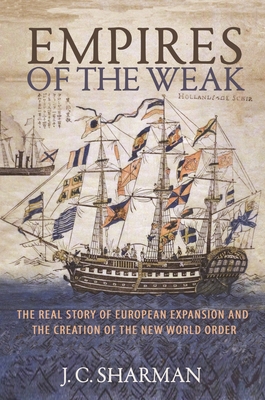

 Princeton University Press
Princeton University Press
Empires of the Weak: The Real Story of European Expansion and the Creation of the New World Order


Key Metrics
- J C Sharman
- Princeton University Press
- Paperback
- 9780691210070
- 9.1 X 6.1 X 0.7 inches
- 0.7 pounds
- History > World - General
- English
 Secure Transaction
Secure TransactionBook Description
How the rise of the West was a temporary exception to the predominant world order
What accounts for the rise of the state, the creation of the first global system, and the dominance of the West? The conventional answer asserts that superior technology, tactics, and institutions forged by Darwinian military competition gave Europeans a decisive advantage in war over other civilizations from 1500 onward. In contrast, Empires of the Weak argues that Europeans actually had no general military superiority in the early modern era. J. C. Sharman shows instead that European expansion from the fifteenth to eighteenth centuries is better explained by deference to strong Asian and African polities, disease in the Americas, and maritime supremacy earned by default because local land-oriented polities were largely indifferent to war and trade at sea. Empires of the Weak demonstrates that the rise of the West was an exception in the prevailing world order.
Author Bio
Jason Sharman is the Sir Patrick Sheehy Professor of International Relations in the Department of Politics and International Studies at Cambridge. He received his Ph.D. in political science from the University of Illinois at Urbana-Champaign in 1999, and his undergraduate degree in history and politics from the University of Western Australia.
Previously, Sharman worked at American University in Bulgaria, the University of Sydney and Griffith University, and he has spent shorter periods as a visitor at St Petersburg State University, Columbia University and the London School of Economics.
Research Interests
Sharman’s research interests range from the study of international corruption, money laundering and tax havens, to the global politics of the early modern world.
Source: University of Cambridge
Videos




Community reviews
Write a ReviewNo Community reviews